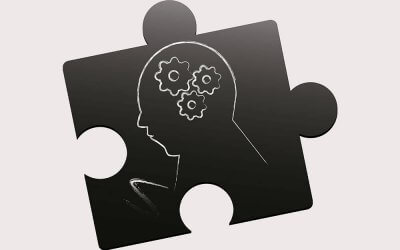Quality sleep is an essential part of maintaining good health that is often overlooked. Sleep is necessary for overall wellness. Without 7-8 hours of sleep, the brain and body will be deficient in proper overall function, repair, growth, immunity, adaptability, and copiability.
It has been reported that a person who suffers from inadequate sleep can be 10 times more likely to experience depression symptoms and 17 times more likely to experience symptoms of anxiety.
But, getting good sleep at night, in order to enjoy a healthy day from sunrise to sunset, can often be daunting for some. For those unable to get or stay asleep, there may be some things you can implement to help you attain healthy sleep each night and hopefully remain there for a solid night.
Table of Contents
Mattress & Bedding
- Make sure your mattress is firm enough to support your entire spine.
- Turn your mattress every four months for a longer mattress life.
- Use a neck roll or a low comfortable pillow that does not push your neck
up. Your neck should be close to the mattress and not bent in an upward position. - Consider utilizing a weighted blanket.
- Try adding a body-length pillow to your bedding.
Comfort & Temperature
- Do not wear heavy night clothing — be comfortable and remove tight
undergarments. - Do not keep room temperature too hot — cooler is best.
- Avoid having fans blowing directly on your face or head.
Electronics
- Ideally, shut off Wi-Fi in the evening as soon as possible. Take off all wireless devices from wrists, neck, or anywhere on the body.
- Consult a biological builder, if you are electrosensitive, to review and help you restructure your bedroom or any room in your house to reduce all electromagnetic frequencies that can disrupt sleep.
- If you are electrosensitive and have an adjustable or electric bed (for example, a Sleep Number® bed), unplug the bed once you have adjusted it for comfort.
- Use blue-blocking glasses in the evening, as the sun goes down, when reading, viewing television or other screens, or performing home activities or tasks.
- Ensure that your room is pitch black or that you have a comfortable eye covering to prevent any light from getting into your eyes.
- Use a battery-operated clock that is not annoying, with a tick or hum that may disturb you. If no clock is needed, even better.
- Play a CD if you need white noise to help lull you to sleep. Avoid wireless devices that send our radiation to you.
- Read a paper book in a low (non-intense) light that is not irritating to your eyes — leave all cellular or wireless phones, iPads, tablets, or laptops in a distant room turned off completely.

Food & Drink
- Your last meal of the day should not be heavy, spicy, or within 2 hours of bedtime.
- Drink only water that is not chilled in the evening before bed.
- If you are taking medications or supplements, please ensure that they are taken at proper times so as not to cause sleep disturbances.
Good Nightime & Sleep Habits
- Try to get some exercise in the evening a few hours before bedtime.
- Avoid potentially disturbing phone conversations before bedtime.
- Write down any unfinished business on a notepad for the next day and accept that you cannot do it all in one day.
- Set a consistent time to sleep, preferably before 11 PM.
- Take a warm bath or shower for 10 minutes maximum.
- Do not wash your hair at night unless you plan to dry it fully.
- Massage a non-toxic, preferably organic, skin cream or lotion onto all skin.
- Take a nice deep breath and curl up into the most comfortable position for your body.
- Meditate/pray/chant to relax and calm the body and spirit.
- For safety, keep a flashlight next to the bed.
- Be considerate of any partner and plan sleep accordingly.
- Take a moment to be thankful for the life you have.
The Importance of Good Sleep
Sleep is so vital to our everyday functioning and overall health. Good sleep each night has many advantages, including better immune function, lower blood pressure, reduced stress, and a better mood overall.
Sleep also sets the biological clock for your body’s cell repair and detoxification.
Studies have shown that the bacteria in our gastrointestinal tract communicate with our endocrine, neural, and immune systems through our central nervous system, affecting hormones, neurotransmitters, and immune system modulators.
Combatting Sleep Problems
If you or your family suspects that you may have a sleep disorder, such as sleep apnea, restless leg syndrome, disturbing regular nightmares, or that you are sleepwalking, please see your healthcare provider right away.
For individuals who are heavy snorers or who have extreme daytime fatigue daily, you will need a polysomnogram or sleep test to determine if you are suffering from sleep apnea. A health provider can guide you on how to take care of this to reduce your chances of serious cardiovascular conditions.
Also, any regular nighttime awakenings to urinate will require a visit with a healthcare provider.
- The Gut-Brain Connection: Your Second Brain and Mental Health - February 4, 2026
- Rethinking Your Sip: The Unfiltered Truth About Alcohol - December 22, 2025
- Consumer Beware: The Ease of Deception in the Food Industry - October 28, 2025





